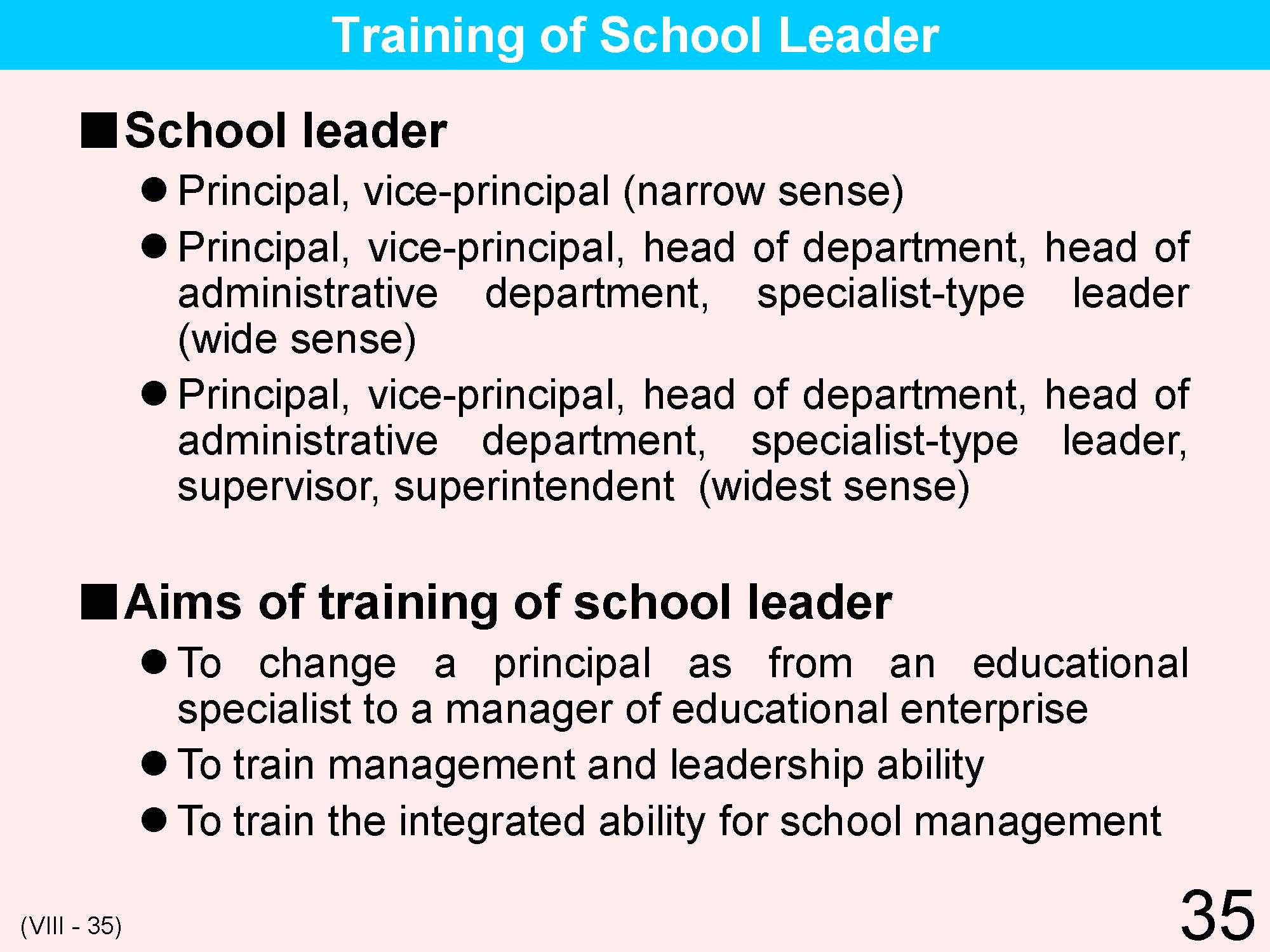| 35 | gVIII Teacher's Qualifications/Training/Appointmenth | Previous | Next | JAPANESE |
|---|---|---|---|---|
 |
||||
| The role and leadership of a principal is very important in promoting school independence and autonomy through autonomous school management. Currently in Japan there is a new concept of an ideal type of a principal. A principal is now expected to have the ability to manage and educational business requiring management and leaderships, whereas previously a principal was viewed as an educational specialist. Under legislation providing for a school management council, principals are not only not only expected to understand the legal aspects of the law but also to manage the council. Since this type of ability was not required previously, an adjustment is required by principals to be able to take on and implement such management tasks. This requirement necessitates changes in the training of school leaders that is differs from the past.
Normally, school leaders comprise teachers who hold management positions at schools such as principals, vice-principals, various committee heads, and heads of affairs. When viewed in narrow sense, school leaders are limited to principals and vice-principals, while in a wider sense, guidance directors and superintendents of education may be included. The central education committee defines a school leader in general terms, including leading teachers, but does not indicate specific positions such as those of principals and vice-principals. |
||||
Please send your comments and concerns here
kamada@criced.tsukuba.ac.jp
Center for Research on International Cooperation in Educational Development(CRICED) University of Tsukuba
1-1-1, Tennodai, Tsukuba-shi, IBARAKI
305-857, JAPAN